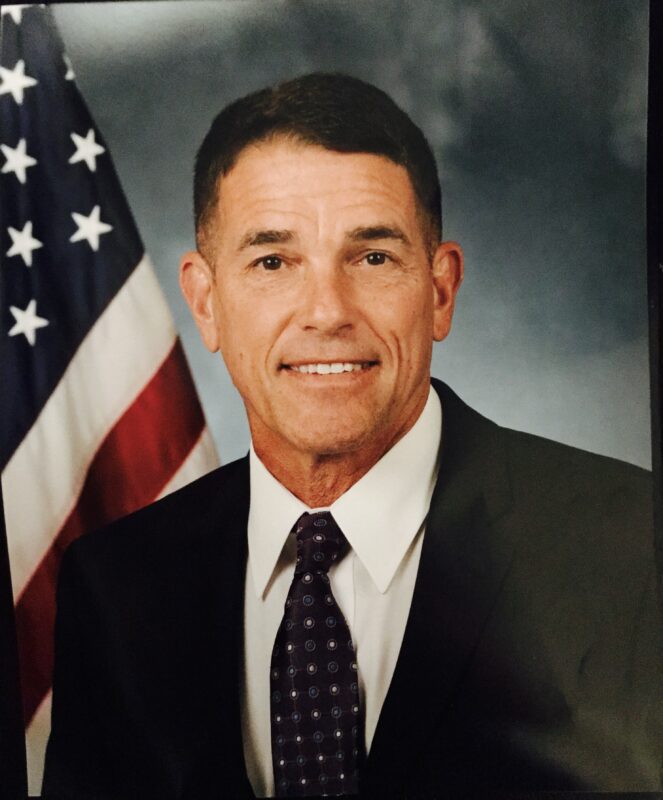
The finalists for WashingtonExec’s Pinnacle Awards were announced Oct. 8, and we’ll be highlighting some of them until the event takes place virtually Nov. 12.
Next up is Government Cybersecurity Executive of the Year finalist Kevin Nally, who’s chief information officer of the U.S. Secret Service. Here, he talks key achievements, future focuses and shaping the next-generation leaders.
What key achievements did you have in 2019/2020?
I believe the most significant accomplishment in the area of leading change is the successful effort
during the beginning of COVID to expand the Secret Service’s bandwidth and VPN capacity, enabling over
8,000 employees to work remotely, preserving the Secret Service’s workforce to support investigative and protective operations as well as multiple National Special Security Events.
The bandwidth increase for our circuits went from 1G to 10G, to include adding a redundant 10G circuit to support high availability/disaster recovery site — accomplished within days instead of weeks. With the increase in bandwidth, I implemented Microsoft Teams, a collaboration application which enhances being able to work remotely. An example is we held a collaboration session for over 13,000 people from outside the organization with absolutely no issues.
Our Federal Information Security Modernization Act scores well exceeded my goal for three
straight years. Again, at the end of fiscal year 2020, the Secret Service had the best scores in the entire Department of Homeland Security now for three years in a row. For the first time in the history of the Secret Service, I am green across all categories for three years in a row.
Additionally, I implemented an automated daily scorecard process and website, which provides me complete situational awareness (daily) on the cybersecurity status of our networks, and now the data feeds directly into a data repository displaying our daily scores.
What has made you successful in your current role?
My parents and the way they raised me. They instilled in me to be a role model, be honest, study, read
and to listen to others. Being a CIO is one thing, but to be successful, you need to be a solid leader.
Bottom line, I focus on leadership, people, the mission and working to get the resources we need to
accomplish the mission.
What was a turning point or inflection point in your career?
My turning point was almost five years ago. I married a beautiful lady who is a cyber officer for the U.S.
Army and we have a gorgeous little boy. What I mean by this, I am now in a position to not only
continue my work, but I can support her career with the Army.
My little man and I Metro to daycare, I drop him off, walk to work and do the reverse in the evenings. I do not travel much so I can support her by staying home and taking care of the family. I continue to work as I believe I provide value to the Secret Service, and I feel good going home at night working to support vital missions.
What are you most proud of having been a part of in your current organization?
At this point in time, I would say it is providing the capability and capacity to allow the Secret Service to work remotely without any issues. We have the ability to command control with a multitude of means: phone, email, text, MS Teams, VoIP Equinox, WAVE Radio, radios, desk phones, Outlook Web Access, FaceTime and our newly developed Surveillance, Tracking and Response System, or STARS.
I have also been the chairman of the Executive Resource Board for the past four years, and I am a
c0-chairman for the Secret Service’s Inclusion Engagement Committee.
What are your primary focus areas going forward, and why are those so important to the future of the nation?
My primary focus areas continue to be on mobility as our workforce is extremely mobile. When we have
requirements to build applications and systems for the operators, then I want the applications and systems functional on our mobile devices with cybersecurity built in.
My IT/Cyber Foresight and Innovation Division continues to deliver focused, wide-ranging support in development, test, evaluation, research and analysis for innovative solutions to aid operational and emerging mission initiatives to include zero trust software, host identity protection, storage enhancements to reduce cyberattack vectors, and in preventing network intrusions. To include a smartphone that can replace a desktop computer, potentially reducing the cost or refreshing desktop and laptop computers.
How do you help shape the next generation of government leaders/industry leaders?
My philosophy is to spend all of my training and education budget for my people. I tell them if they earn certifications and are qualified for a step increase and there are not any available with the Secret Service — it is OK to move on to another organization for the promotion — and that I am happy for them.
What’s one key thing you learned from a failure you had?
Not sure I would classify this as a failure, but something I pray to work on and improve is my lack of
patience at times. I want things done now, yet in the right way and all for the right reasons. This is
support the operators and in return supports the synchronized and interactive mission of protection and
investigations.

